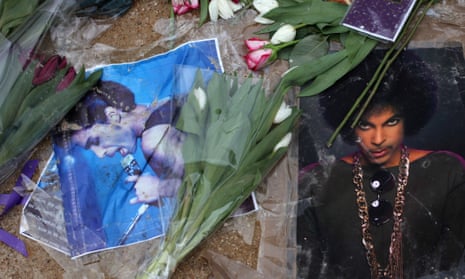It’s been the talk of Twitter – the #RIP[insert name of famous person] and #Enough2016 hashtags that have been so popular of late. In 2016, it certainly seems to be the case that “you turn on the telly and every other story is tellin’ you somebody died”, as was observed presciently by the recently departed Prince. In just four months we’ve already witnessed the demise of many well-loved musicians, comedians, entertainers, presenters, sporting heroes and writers, with our newsfeeds teeming with timeline graphics, archive video clips and fan tributes of all kinds.
Several explanations for the marked rise in the death rate of celebrities have surfaced, with the BBC having shown that there has indeed been an upward trend in the number of famous people dying, so much so that there are already plans to extend the obituary compilation for the BBC News end-of-year round-up show.
First and foremost among explanations is that there are now simply more celebrities to die in the first place. The growth of celebrity culture since the 1950s has been thanks to the influence of cinema and television, pop music and the impact of globalisation that gives us round-the-clock access to sporting heroes, royalty, and reality stars. The idea of celebrity has itself grown beyond its own bounds, so there are now many more people whose deaths must be taken into account.
Among this group, the number of baby boomer celebrities (now reaching the age of 60 or more) is also much higher, so we are more likely to hear about celebrities becoming ill. This also means the trend is likely to continue as each generation of celebrity icons gets progressively older. A new phase of modern celebrity history has begun, and the shock of entry has been heightened by the deaths of some genuine international superstars, whose extraordinariness defied convention and transcended the everyday.
Sigmund Freud suggested that we are all convinced unconsciously of our own immortality, and it appears we believe this even more acutely when it comes to famous people. That David Bowie or Prince could just die without fanfare has become almost unthinkable – this is an age where death has become another opportunity for public spectacle, something that’s “sexier than sex … the best career move you’ve ever made” according to the writer Jenny Diski.
At the same time, we need to take into account confirmation bias and the sheer speed with which the echo chamber of social media makes it possible to consume and disseminate news. The easy access to online media archives has fuelled fan culture, enabling people to select and re-mediate media totems associated with celebrities. Effectively, this allows us to express aspects of our experience and character, allowing our beloved media objects to speak for us.
It also reinforces the importance of stars, lending weight to the idea that those to whom we feel emotional attachment are therefore newsworthy – a central tenet of tabloid culture. Of course, many of these names are known to a vast swath of the population due to the fact that there are so many media channels and outlets today.
A generational nostalgia for shared family experience plays a role here, and those in control of editorial decision-making are not immune to this. Across our mainstream media, there is now a generation of columnists, editors and opinion-makers for whom celebrities have also served as icons of the mind and emotional growth. This must surely feed into shaping the news agenda, and it’s worth noting the number of column inches given over to the demise of baby boomer celebrities compared with those over the age of 75. The death of Billy Paul, for example, was not accorded headline status in the UK.
So, far from being sheer coincidence, there are reasons to believe that the celebrity death phenomenon is here to stay. Ironically enough, the work of many recently deceased celebrities tells us what we ought already to know: we are all going to die eventually – the trappings of fame provide no armour against this. We are all just human in the end.
